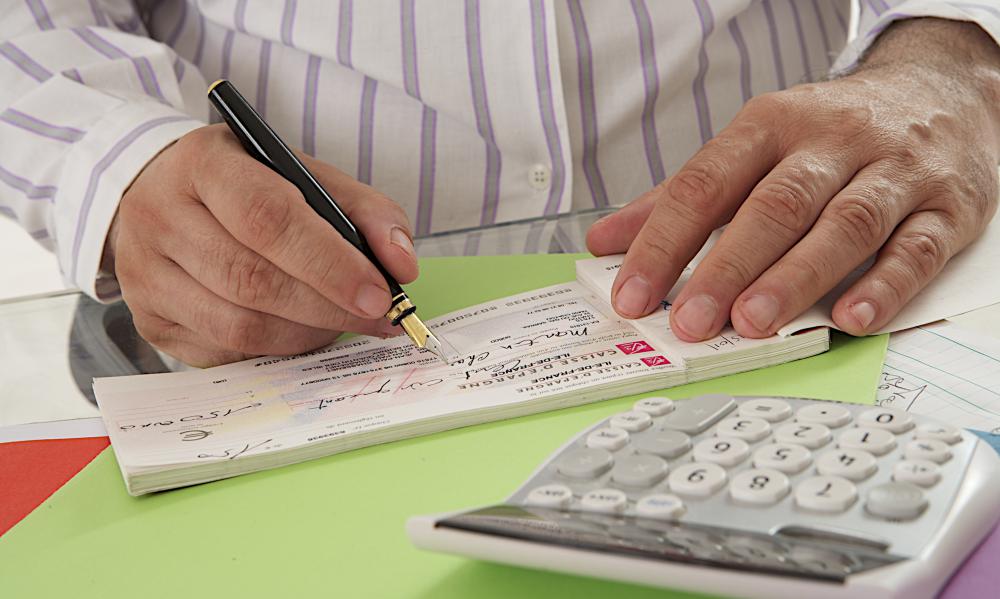At SmartCapitalMind, we're committed to delivering accurate, trustworthy information. Our expert-authored content is rigorously fact-checked and sourced from credible authorities. Discover how we uphold the highest standards in providing you with reliable knowledge.
What is an Overdraft?
An overdraft refers to a charge sent to a financial institution that goes beyond the available balance of the account to which that charge is being applied. This typically takes the form of a bank account with a certain amount of money in it, and a charge or charges that ultimately require more money than is in the account for the charges to clear properly. An overdraft on this type of account can often lead to overdraft fees levied by the bank upon the holder of the account, and some institutions have begun establishing overdraft protection as a service for clients to reduce the chances of such fees.
Typically, an overdraft occurs due to one or more charges being applied to an account that does not have the necessary funds to cover such charges. This can be accidental, due to poor bookkeeping or spending analysis, though it can also be done on purpose to try to spend more money than is truly available. In order to attempt to prevent such abuses, banks and other institutions often charge fees as a deterrent for those who might try to spend money they do not have.

Many banks are required to apply charges to an account in order of highest amount first and then descending amounts from there. This can often mean that rather than a single large charge causing an overdraft fee, several smaller charges can incur multiple fees simultaneously. For example, if someone has $500 US Dollars (USD) in his or her account, then spends $10 USD on one item, $8 USD on another item, and $495 USD on a third item, the bank will typically process the transactions starting with the $495 USD charge first.

Rather than the person having the $10 USD and $8 USD items pass through, and the more expensive item cause a single fee, the larger item will pass and the other two will then cause two fees. These types of fees have caused a number of different banks and services to offer various forms of overdraft protection in order to try to prevent such fees. For example, some banks will allow a charge that would overdraft an account to instead be applied to an associated account in an attempt to prevent overdrafts.
While excellent bookkeeping and expense tracking can often be used to prevent overdrafts, these types of protection are also helpful to avoid accidental overdrafts. Double billing, early charges of renewing services, banking holidays, and other situations can all potentially cause accidental overdrafts. These forms of protection also favor honest people over those who may unscrupulously try to overspend on an account on purpose, since they still require money in another account to protect the first account.
AS FEATURED ON:
AS FEATURED ON:












Discussion Comments
@burcinc-- Yes, a new fee is charged every time a person makes a purchase while in overdraft. Not only that, but some banks charge more fees if an account remains in overdraft more than a certain period of time. For example, a bank may charge a fee for every two weeks that an account remains in overdraft. This may happen even if the individual is not withdrawing any more money.
So these charges and fees can accumulate rather quickly and make it even more difficult to get out of.
I did not realize that every new charge to an account that causes it to go into overdraft is charged a fee separately. I thought that only one fee was charged once there's an overdraft. That definitely doesn't seem fair.
I don't think that overdraft fees are only applied as deterrents. I think banks also make a nice profit from these fees. It's in their favor. Why else would banks allow people to withdraw or spend more money than they have? They could just prevent money withdrawal altogether when there are no longer enough funds in an account.
That's why it's important for customers to be careful about this. It can be easy to spend more than one has, especially if one doesn't look at account balances and summaries often. Some people withdraw cash and spend cash to try and avoid these types of problems. And others use overdraft protection.
Post your comments